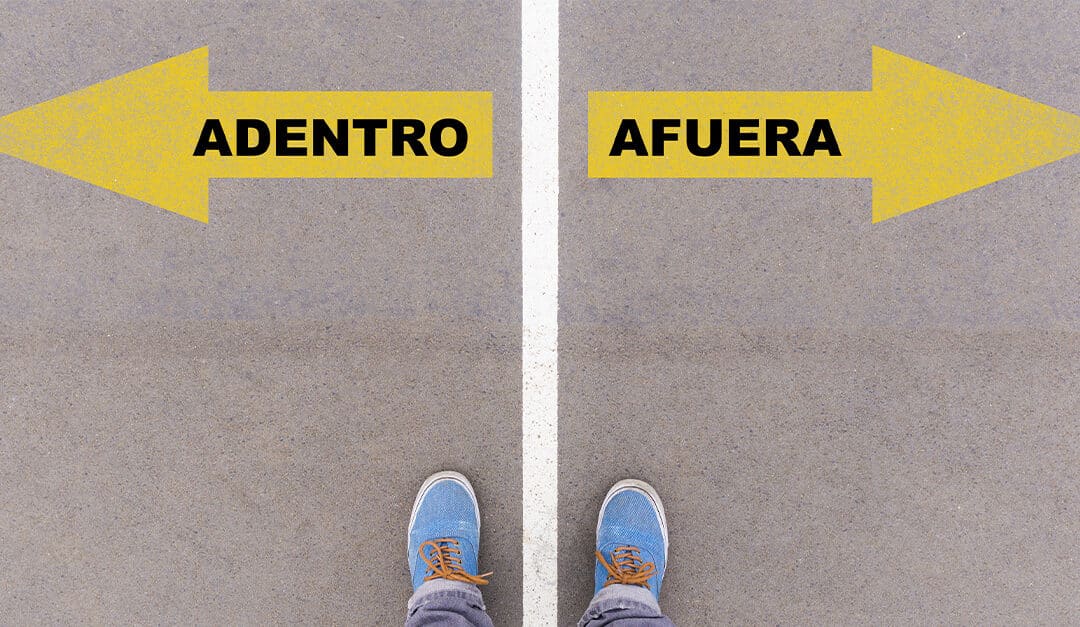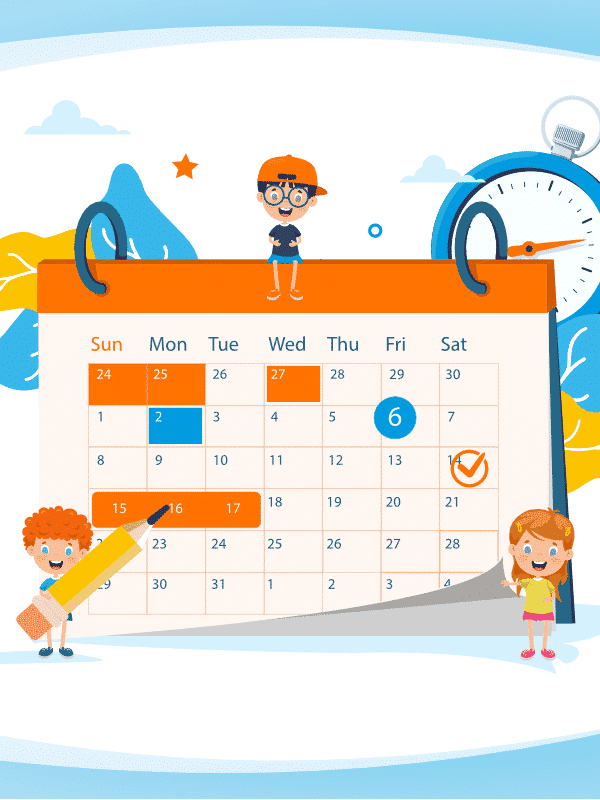When your kids are learning Spanish there are certain topics that are a must. Synonyms and antonyms are one of them. Because they’re part of everyday life. We need synonyms and antonyms to express and describe our feelings, emotions, thoughts, ideas and how we went through a certain situation.
And just one circumstance can trigger different perspectives in us. That’s where synonyms and antonyms come in handy. They add to our vocabulary.
This is a phenomenon that happens in every language, including Spanish! So, yeah, synonyms and antonyms also exist in the Spanish language and are very important.
We already taught you some Spanish synonyms before. Now, it’s time you learn some Spanish antonyms for kids.
On this guide you’ll see some antonyms for a certain word. This will help children have more vocabulary the next time they want to describe opposite feelings or situations.
These next antonyms are also very popular among Spanish speakers. So your kids have to learn these to fully understand a conversation in Spanish. Otherwise, it could be confusing and create chaos.
What’s an Antonym?
Wait, wait, wait! Before you go to the list, we have to make sure your kids understand what an antonym is.
An antonym is a word that has the opposite meaning of another word. For example: The words “synonym” and “antonym” are antonyms, because they express opposite ideas. They mean different, contrary things. Another example is “happy” and “sad”. Do you see it now? It’ll be even easier to understand with the list below.
Ps. Antonym in Spanish is “antónimo”, and “antonyms” is “antónimos”.
Antonyms in Spanish
1. Feliz (Happy)
Antonyms:
- Triste (sad)
- Infeliz (unhappy)
- Entristecida (for women) / Entristecido (for men) (saddened)
For example:
- Hoy me siento feliz. (Today, I’m feeling happy).
Vs
- Hoy me siento triste. (Today I’m feeling sad).
- Hoy me siento infeliz. (Today I’m feeling unhappy).
- Hoy me siento entristecido. (Today I’m feeling saddened).
2. Fácil (Easy)
Antonyms:
- Difícil (difficult)
- Complicado (complicated)
For example:
- El examen estuvo muy fácil. (The exam was very easy).
Vs
- El examen estuvo muy difícil. (The exam was very difficult).
- El examen estuvo muy complicado. (The exam was very complicated).
3. Cerca (Near)
Antonyms:
- Lejos (far)
For example:
- Mi abuela vive cerca de mí. (My grandma lives near me).
Vs
- Mi abuela vive lejos de mí. (My grandma lives far from me).
4. Adentro (inside)
Antonyms:
- Afuera (outside)
For example:
- Los niños están saltando la cuerda adentro de la casa. (The kids are jumping the rope inside the house).
Vs
- Los niños están saltando la cuerda afuera de la casa. (The kids are jumping the rope outside the house).
5. Bajar (To lower / To go down)
Antonyms:
- Subir (to go up)
- Ascender (to ascend)
For example:
- Cuidado al bajar las escaleras. (Careful when going down the stairs).
Vs
- Cuidado al subir las escaleras. (Careful when climbing the stairs).
- Cuidado al ascender las escaleras. (Careful when ascending the stairs).
6. Subir (To raise / To go up)
Antonyms:
- Bajar (to lower / to go down)
- Descender (to descend)
For example:
- No voy a subir al escenario. (I won’t go up on stage).
Vs
- No voy a bajar del escenario. (I won’t go down the stage).
- No voy a descender del escenario. (I won’t descend from the stage).
7. Abierto (Open)
Antonyms:
- Cerrado (male / close)
- Cerrada (female / close)
For example:
- ¡Ay, sí! ¡La tienda de dulces está abierta! (Oh yeah! The candy store is open!)
Vs
- ¡Ay, no! ¡La tienda de dulces está cerrada! (Oh no! The candy store is closed!)
8. Restar (To subtract)
Antonyms:
- Sumar (to add)
- Añadir (to add) (*this is more for things than for the action of doing math sums)
For example:
- Te voy a restar tres puntos del examen final. (I’m going to subtract three points from the final exam).
Vs
- Te voy a sumar tres puntos al examen final. (I’m going to add three points to your final exam).
- Te voy a añadir tres puntos al examen final. (I’m going to add three points to your final exam).
9. Calor (Hot)
Antonyms:
- Frío (cold)
- Helado (freezing / frozen)
For example:
- ¡Agh, hace demasiado calor! (Ugh, it’s too hot!)
Vs
- ¡Agh, hace demasiado frío! (Ugh, it’s too cold!)
- ¡Agh, está helado! (Ugh, it’s freezing!)
10. Grande (Big)
Antonyms:
- Chico (small)
- Pequeño (little)
For example:
- Mi salón de clases es grande, así que tengo muchos compañeros. (My classroom is big, so I have many classmates).
Vs
- Mi salón de clases es chico, así que tengo pocos compañeros. (My classroom is small, so I have few classmates).
- Mi salón de clases es pequeño, así que tengo pocos compañeros. (My classroom is little, so I have few classmates).
11. Feo (Ugly)
Antonyms:
- Bonito / Bonita (male / female) (pretty)
- Hermoso / Hermosa (male / female) (beautiful)
- Bello / Bella (male / female) (beautiful)
- Precioso / Preciosa (male / female) (precious)
For example:
- El parque frente a mi casa está feo. (The park in front of my house is ugly).
Vs
- El parque frente a mi casa está bonito. (The park in front of my house is pretty).
- El parque frente a mi casa está hermoso. (The park in front of my house is beautiful).
- El parque frente a mi casa está bello. (The park in front of my house is beautiful).
- El parque frente a mi casa está precioso. (The park in front of my house is precious).
12. Valiente (Brave)
Antonyms:
- Cobarde (coward)
- Miedoso (fearful)
- Temeroso (fearful)
For example:
- John es muy valiente, se atrevió a entrar a esa casa embrujada. (John is very brave; he dared to go into that haunted house).
Vs
- John es muy cobarde, no se atrevió a entrar a esa casa embrujada. (John is very cowardly; he didn’t dare to go into that haunted house).
- John es muy miedoso, no se atrevió a entrar a esa casa embrujada. (John is very fearful; he didn’t dare to go into that haunted house).
- John es muy temeroso, no se atrevió a entrar a esa casa embrujada. (John is very fearful; he didn’t dare to go into that haunted house).
13. Limpio (Clean)
Antonyms:
- Sucio (dirty)
- Mugriento (filthy)
For example:
- No voy a bañar a mi perro, porque está limpio. (I’m not going to clean my dog, because he’s clean).
Vs
- Voy a bañar a mi perro, porque está sucio. (I’m going to clean my dog, because he’s dirty).
- Voy a bañar a mi perro, porque está mugriento. (I’m going to clean my dog, because he’s filthy).
14. Verdad (True / Truth)
Antonym:
- Mentira (lie)
For example:
- Mi mamá se enteró de que era verdad lo que le dijimos. (My mom found out that what we told her was true).
Vs
- Mi mamá se enteró de que era mentira lo que le dijimos. (My mom found out that what we told her was a lie).
15. Rápido (Fast)
Antonyms:
- Lento (slow)
- Despacio (slowly)
For example:
- Ellos corren muy rápido. (They run very fast).
Vs
- Ellos corren muy lento. (They run very slow).
- Ellos corren muy despacio. (They run very slowly).
16. Día (Day / Daytime)
Antonym:
- Noche (night)
For example:
- Me gusta jugar vóleibol cuando es de día. (I like playing volleyball when it’s daytime).
Vs
- Me gusta jugar vóleibol cuando es de noche. (I like playing volleyball when it’s night).
17. Gordo (Fat)
Antonym:
- Flaco (skinny)
- Delgado (thin)
For example:
- El veterinario dijo que mi gato está muy gordo. (The veterinarian said that my cat is very fat).
Vs
- El veterinario dijo que mi gato está muy flaco. (The veterinarian said that my cat is very skinny).
- El veterinario dijo que mi gato está muy delgado. (The veterinarian said that my cat is very thin).
18. Alto (Tall)
Antonyms:
- Bajo / Baja (male / female) (short)
- Chaparro / Chaparra (male / female) (short)
For example:
- La maestra de español es muy alta. (The Spanish teacher is very tall).
Vs
- La maestra de español es muy baja. (The Spanish teacher is very short).
- La maestra de español es muy chaparra. (The Spanish teacher is very short).
19. Divertido (Fun / Funny)
Antonym:
- Aburrido / Aburrida (male / female) (bored / boring
For example:
- Estoy muy divertido leyendo, porque este libro es divertido. (I’m having so much fun reading, because this book is funny).
Vs
- Estoy muy aburrido leyendo, porque este libro es aburrido. (I’m very bored reading, because this book is boring).
20. Reír (To laugh)
Antonym:
- Llorar (to cry)
For example:
- A ella siempre la hace reír esta película. (This movie always makes her laugh).
Vs
- A ella siempre la hace llorar esta película. (This movie always makes her cry).
TFK Helps Your Kids Expand their Spanish Vocabulary in a Cool Way
There you go! Now your kids have a list of antonyms for them to differentiate between what they truly want to say. There won’t be confusion between two words that can be used in the same situation but have different meanings. Thank God!
Oh, but wait, don’t go! There’s still so much more vocabulary they could learn to fully understand Spanish and express their real feelings. Don’t worry, because here at TruFluency Kids we also have other blogs for important word topics. You can check our differences for “ahí”, “hay” and “ay” blog. Or the one about Spanish greetings and goodbyes.
But even then, they still need to practice. Otherwise, how will they truly learn how to apply all these vocabulary in a real conversation? Or how to pronounce the words correctly? It’s like people say: Practice makes perfect. And here at TruFluency Kids we can help you with that!
We offer Spanish immersion classes for your children to develop all the Spanish skills, like listening, grammar, reading, and speaking. Even better, we focus a lot on speaking by encouraging students to talk. That’s the best way they’ll achieve Spanish fluency and will build confidence to speak with a native in a real-life situation.
And we haven’t even told you the best. We do fun, everyday activities in every class, so kids learn in a natural, casual way while having a great time. They won’t get bored! We’ll sing, dance, play, do crafts, and even cook in Spanish!
You can take a 30-minute trial class now for only $9! The class is instructed by a native teacher and there are no more than five students, so everything is more personalized. You can choose between one of our flexible schedules; it’s that easy. And after the trial class is done, you’ll be able to have a Q&A for parents to get an answer to all your questions.
¡Ya verás que nuestras clases son lo contrario de aburridas, cada clase es súper divertida!


